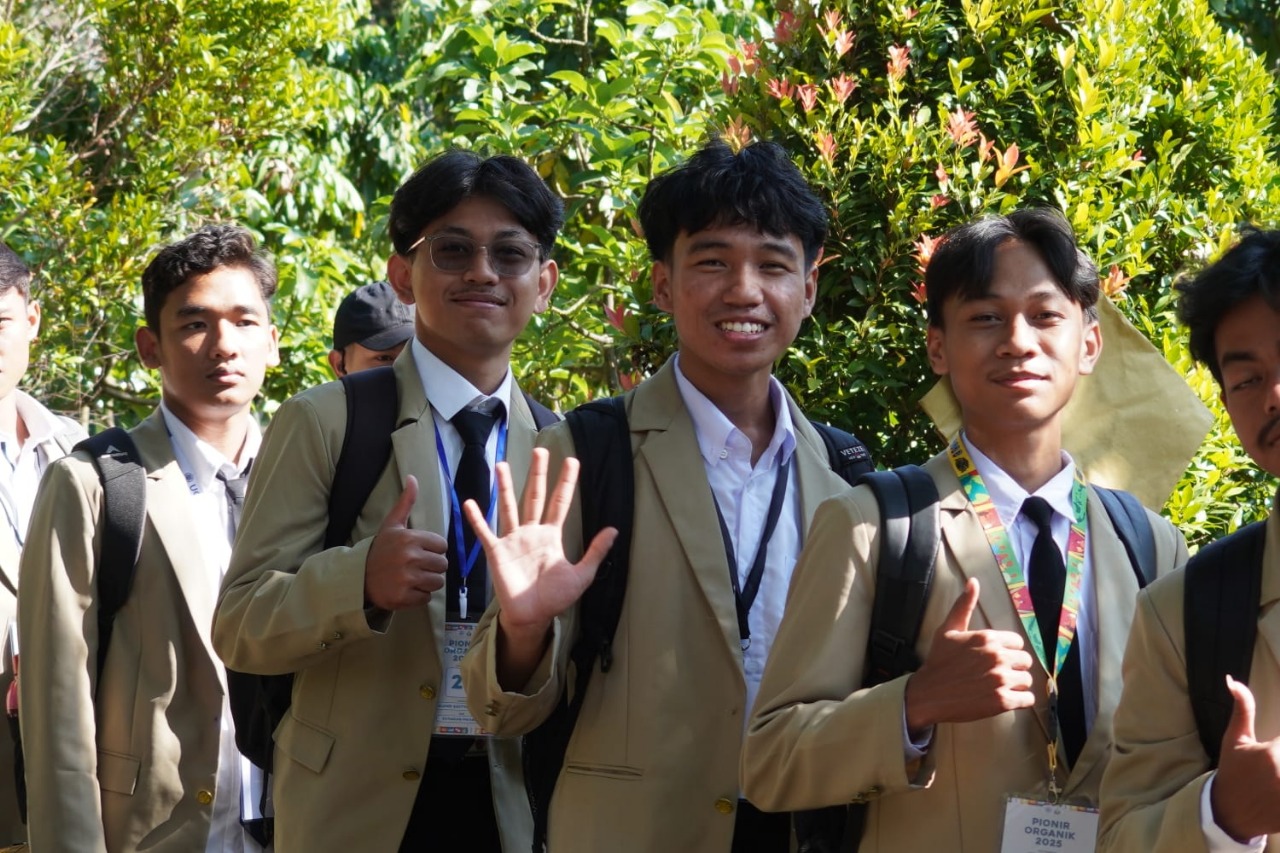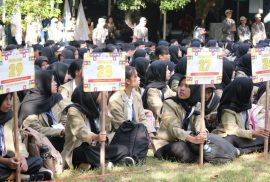
A total of 635 Amarta Muda, the designation for new students of the Faculty of Agriculture, Universitas Gadjah Mada (Faperta UGM) officially took part in the opening of the Pionir Organik 2025 event, held on Wednesday, 6 August, 2025, at the Fisheries Field of the Faculty of Agriculture UGM.
The event was symbolically opened through the rotation of the “Harmoni Cakra Abhipraya” gear by the Dean of Faperta UGM, Ir. Jaka Widada, M.P., Ph.D., accompanied by the faculty leadership team, including the Vice Dean for Academic and Student Affairs, Dr. Dyah Weny Respatie, S.P., M.Si., Coordinator of the PPSMB Pionir Organik 2025 Cluster, Dr. Firdausi Nur Azizah, S.P., and General Coordinator of Pionir Organik 2025, Adiyatma Tunjung R.





